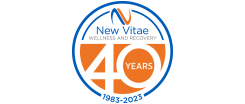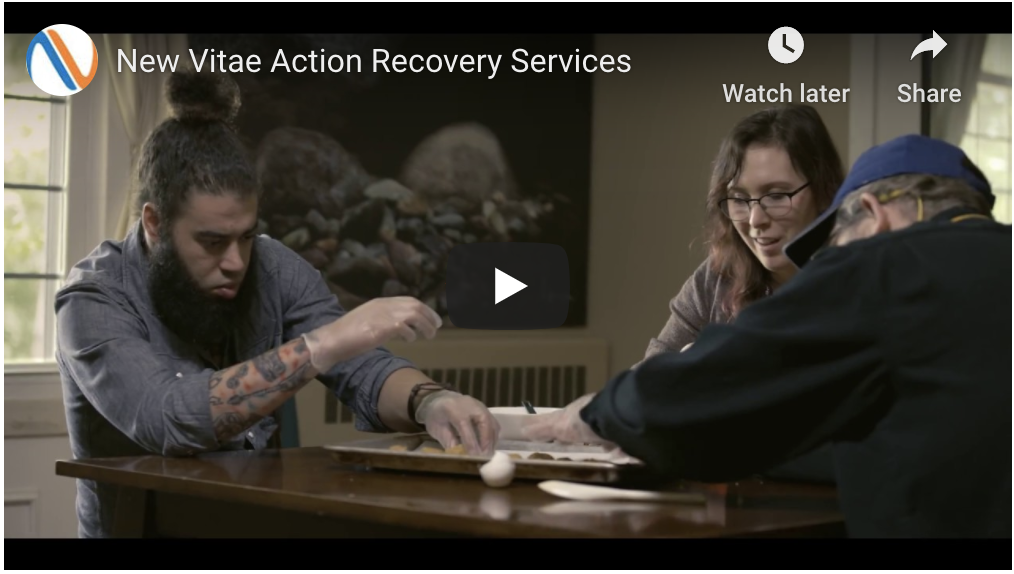Action Recovery utilizes residential habilitation and neurocognitive structured day services to support personal growth and proficiency. Action Recovery’s Neurocognitive Structured Day service provides organized daily programming centered on cognitive skill training to help with regaining functional- and vocational abilities and improving daily living skills. Neurocognitive structured groups are planned and led by talented group facilitators who teach skill-building while creating opportunities for social interaction in a fun and creative environment.
Action Recovery also offers routine skill-building groups, including cooking, money management, social skills, employment skills, personal care, sensory activities, and technology training. Technology devices, such as tablets and computers, are available to promote the use of compensatory strategies and cognitive skill training.
Our residential habilitation service ensures the health, safety, and welfare of individuals to assist in the acquisition, improvement, and retention of the skills needed to live successfully in homes and communities. We offer:
- A full range of day treatment services, including related therapies and volunteer and vocational opportunities
- Individualized rehabilitation in personal care, household management, health and medical care, grocery shopping, money management, and budgeting
- Customized supervision from intensive to intermittent support
- Social, recreational, and spiritual activities
- Behavioral programming and support
- Accessibility for individuals with limited mobility
- 24-hour staff support for assistance with safety as needed.
- Transportation to daily programs, therapies, medical appointments, and community outings.
In addition to these supports, individuals receiving services from Action Recovery can utilize the New Vitae Wellness and Recovery Center to assist with emergent or long-term behavioral health challenges. Individual and group therapy, mentoring, and other individualized supports can be woven into a plan that emphasizes holistic care.
Our aim at New Vitae Action Recovery is to personalize supports to help the individual and his/her family reclaim their lives.
Our Action Recovery Services have been recognized by the Academy of Certified Brain Injury Specialists Alliance; we are honored to be Gold Members as a result of our commitment to education and training. Action Recovery is also proud to be accredited by CARF.
We invite you to learn more about the possibilities associated with the Action Recovery Brain Injury Service. Please contact us at: 610.928.5200, extension 272.
Click here to download our brochure on Action Recovery Services.


What is Respite Care?
If you’ve been taking care of someone with a long-term disability that needs attention 24/7, you can probably use respite care services. Respite care services mean that someone comes to your home and gives you a short break. The caregiver can take some much needed time to go to work, exercise, or even relax. During the time, one of the staff members at New Vitae will be helping your loved one get the support they need. Whether that support is peer interactions, recreational activities, or assistance with daily living tasks, we take care of it all.
What are Transitional Living Services?
Transitional living services are services specifically designed for those who would otherwise be placed in a rehabilitation facility for brain injuries. We’ve designed these services to support the individual and provide in-home training to minimize a person’s chronic disabilities. They can restore the person’s ability to function cognitively, physically, and behaviorally within the context of the family and the community. These programs are vital for a person with severe brain injuries to function in the future.
What are Long Term Care Services?
If you or a loved one has suffered a brain injury, you may need long term care services. These services can provide fundamental support for the family and ensure that the individual gets the care that they need in the future. With the help of long care services, you can learn how to manage your loved one’s challenges now and in the future.
Contact New Vitae Wellness and Recovery
Action Recovery staff are available to provide educational training to schools, providers, and other interested community groups. Additional information is readily available through contact with our admissions department. Click here to download our brochure on Action Recovery Services.
To learn more about the Action Recovery Program, or to enroll your loved one in treatment at New Vitae Wellness and Recovery, contact our excellent treatment programs today by calling 610.928.5200.
Helpful Information
Improving Chances of Returning to Work After a Traumatic Brain Injury
Concussive Brain Injury
Managing Pain After a Traumatic Brain Injury
Traumatic Brain Injury What to do When Your Love One is Suffering




